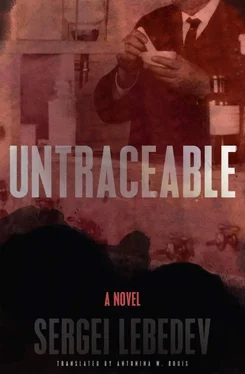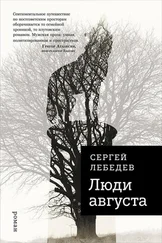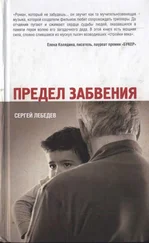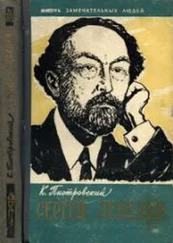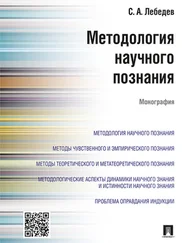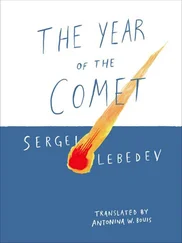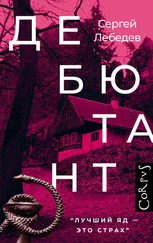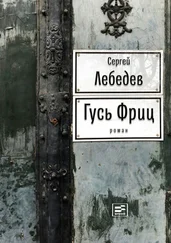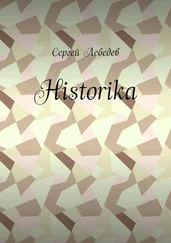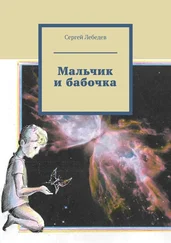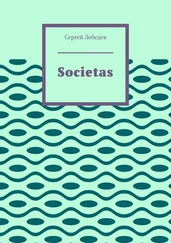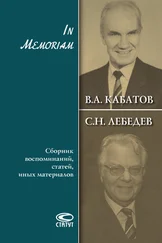Сергей Лебедев - Untraceable
Здесь есть возможность читать онлайн «Сергей Лебедев - Untraceable» весь текст электронной книги совершенно бесплатно (целиком полную версию без сокращений). В некоторых случаях можно слушать аудио, скачать через торрент в формате fb2 и присутствует краткое содержание. Город: New York, Год выпуска: 2021, ISBN: 2021, Издательство: New Vessel Press, Жанр: Современная проза, на английском языке. Описание произведения, (предисловие) а так же отзывы посетителей доступны на портале библиотеки ЛибКат.
- Название:Untraceable
- Автор:
- Издательство:New Vessel Press
- Жанр:
- Год:2021
- Город:New York
- ISBN:978-1-939931-90-0
- Рейтинг книги:3 / 5. Голосов: 1
-
Избранное:Добавить в избранное
- Отзывы:
-
Ваша оценка:
- 60
- 1
- 2
- 3
- 4
- 5
Untraceable: краткое содержание, описание и аннотация
Предлагаем к чтению аннотацию, описание, краткое содержание или предисловие (зависит от того, что написал сам автор книги «Untraceable»). Если вы не нашли необходимую информацию о книге — напишите в комментариях, мы постараемся отыскать её.
Untraceable — читать онлайн бесплатно полную книгу (весь текст) целиком
Ниже представлен текст книги, разбитый по страницам. Система сохранения места последней прочитанной страницы, позволяет с удобством читать онлайн бесплатно книгу «Untraceable», без необходимости каждый раз заново искать на чём Вы остановились. Поставьте закладку, и сможете в любой момент перейти на страницу, на которой закончили чтение.
Интервал:
Закладка:
“Why do you ask?” Kalitin asked automatically; nine days took away almost all his hope.
“You live here. You are my parishioner, even if you don’t go to church,” Travniček replied with dignity.
The pastor’s words engendered a strange sense of trust, as if he had been sent a smart animal who would save him, a clever lizard that knew the secret passages in the rocks.
His mind began calculating possibilities.
He was found after the invitation to join the investigation. That means the leak was from there. He couldn’t ask for help, it might go to a mole. That may even be the plan: make him jumpy, ask for help, for evacuation.
How many would come? Two. Kalitin had consulted the people who wrote the manual. They would come by car. It was very likely that they were already here. Near the house. In the woods. In the hills. With binoculars. Waiting for him to come back.
There was nowhere to run. No one to ask for help. He had to get into the house. Neophyte was there, his ticket. Without the deadly substance and with a fatal diagnosis no one needed him. Just garbage. They would not treat his disease until he first showed them his wares.
“Let’s get your car out of the parking lot,” Travniček said gently. “They certainly know your license plate number. I assume you don’t want to call the police?”
Kalitin shook his head.
“Let’s go,” Travniček said. “Don’t forget to pay your bill.”
“Where?” Kalitin asked, getting up and reaching for his wallet.
“To the church. Where else?” Travniček replied. “You don’t think they’ll look for you in the church?”
Kalitin had no answer.
“Why are you helping me?” he demanded as soon as the stepped over the threshold of the church. The car was hidden behind shrubs in the area for garbage cans; if you didn’t know it was there, you wouldn’t find it.
“It’s my duty,” the priest said, locking the door.
“All right. I’ll ask a different way. Why are you helping—me?” Kalitin was overcome with hysterical laughter, a response to the fear.
“It’s my duty,” Travniček repeated.
“Listen, you don’t know about me,” Kalitin giggled. “I’m not calling the police. Doesn’t that worry you?”
“Wait, I’ll bring some wine,” Travniček responded kindly. “It’s for communion,” adding apologetically. “But you need a sip or two. To calm down.”
Kalitin remained standing in confusion.
It was the first time he had entered the church that he had seen from the outside a thousand times.
The vaulted ceiling reminded Kalitin of his laboratory. Yes. They had worked in a former church. The same narrow windows, extremely thick walls, the same design.
He looked closely at the walls, slowly walked along the rows of benches of hard wood. It was dark. He couldn’t see well. However, the paintings would have been flat and meaningless to him even in good light. Who were the bearded men with haloes—apostles, saints? What were they doing? What was the significance of their positions?
He reached the altar. The vaults were more curved and the figures on them hung above Kalitin. The Last Judgment, that he understood. It was the only thing he could understand in the church without prompting.
He looked again at the architectural composition, the shape of the space. He remembered the trumpeting angel cut at the waist and thought: form dictates subject, happy that the ability to think deeply and nimbly had returned to him.
Below, at eye level, horned devils with blue tongues were attacking sinners with pitchforks; multieyed monsters dragged the bodies into the purple abyss, below floor level.
Above, in the diffuse aureole of light, the heavenly host conquered creatures that had flown too high, into forbidden territory. In the center, Jesus stood on a cloud. Along the sides, in the wedge shapes of the vaults, angels blew into long trumpets.
The one on the right remotely resembled the one on the Island, as if two artists had painted the same creature.
This would have been there, Kalitin thought, seeing the entire painting. That’s what! The Last Judgment! And we were working right under it. Among invisible devils and monsters that had been removed from the walls.
Kalitin shivered. It was cold in the church. The porous limestone seemed to have absorbed the river damp and was now releasing it inside.
Travniček returned with the wine. Kalitin gulped it down—sweet, fragrant.
He decided to stay there until nightfall. Really: Who would look for him in the church?
In the dark, he would go through the woods to the back door. They didn’t know that he knew about them; if the killers were there, they would expect him to drive up to the front door. As long as Travniček did not change his mind and turn him in. Should he ask him to go to the house? How would he explain the container?
“I’ll help you,” Travniček said unexpectedly. “But you must hear me out,” he said solemnly and severely.
“All right,” Kalitin said carefully. Let him say whatever he wanted, as long as he could remain here until night. Strange, but he felt safe in the church. He pictured how it looked from the outside—grim, dark, belonging to no one, and that inspired confidence similar to what he felt on the Island.
“Just don’t take offense,” Travniček added. “I’m not good at being a pastor. Do you remember Hessman? The real estate agent who sold you the house?”
“Yes,” Kalitin said, confused. “What about him?”
“I’ll try to explain,” Travniček continued, arms crossed on his chest. “You went to his funeral. Hessman used to be an officer in state security. He worked in the department overseeing religion.”
“Did he tell you about me?” Kalitin asked hurriedly, remembering the perceptive agent’s deduction about him.
“No, of course not. We rarely talked. I was the only one who knew who he was. Hessman—you know this—turned out to be a very good real estate agent. His dealings were flawless. If he had not joined the service as a youth, he could have lived an honest life. Selling houses. And he committed evil only on instruction. He followed orders, no more than that.”
“Why are you telling me this?” Kalitin asked nervously.
“It may seem like I’m beating about the bush. I told you I’m a bad pastor,” Travniček said in a hurry. “That Hessman… You see, I had run-ins with other people from his department. They approached the work differently.”
“How?” Kalitin was amused; let the fool babble while they waited.
“I used to call it creativity in the name of evil,” Travniček replied modestly. “Even like this: the problem of creativity in the name of evil.”
Kalitin decided to take a dig at the pastor, so free, so serious and naive. He knew that Travniček would not throw him out whatever he said or did. Kalitin thought of the Island and enjoying the fact that Travniček did not know who he was, asked with feigned animation: “What do you know about evil? What have you seen? Do you think that evil is the surveillance you experienced?”
“You are right,” Travniček admitted. “I know little. Less than I should. But you are also not right.” His voice changed, deeper, calmer. “I have seen evil. Its birthmarks. Our church has humanitarian missions. I traveled. To Yugoslavia. To the Caucasus. To Syria. I’ve seen concentration camps and could not open their gates. I’ve seen ravines full of corpses felled by bullets. Men killed by soldiers in a field, tossed naked into snow. A village after a chemical attack. People hid in the cellars, but the gas still got to them. The children there have olive skin. But when they got them out of the cellars, they were white. Waxen. The birthmarks of evil. I have seen them.”
Читать дальшеИнтервал:
Закладка:
Похожие книги на «Untraceable»
Представляем Вашему вниманию похожие книги на «Untraceable» списком для выбора. Мы отобрали схожую по названию и смыслу литературу в надежде предоставить читателям больше вариантов отыскать новые, интересные, ещё непрочитанные произведения.
Обсуждение, отзывы о книге «Untraceable» и просто собственные мнения читателей. Оставьте ваши комментарии, напишите, что Вы думаете о произведении, его смысле или главных героях. Укажите что конкретно понравилось, а что нет, и почему Вы так считаете.
